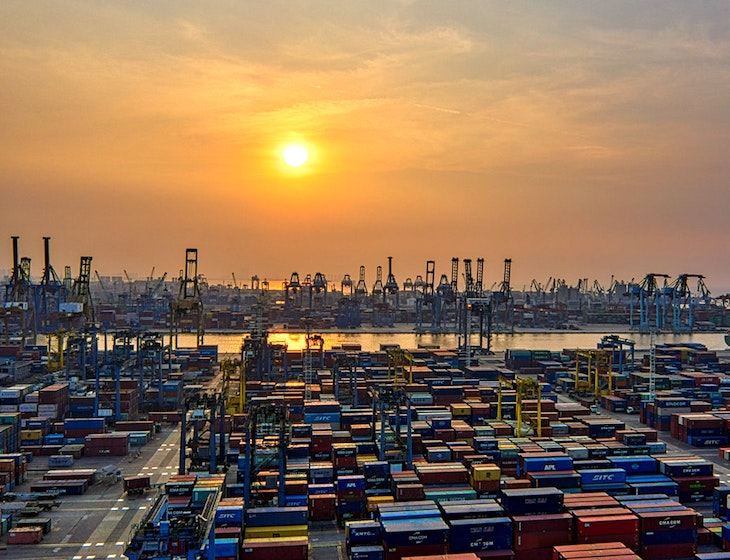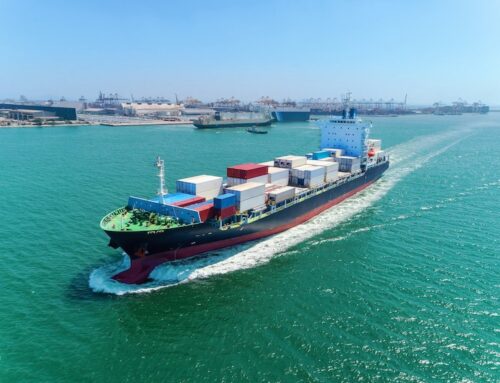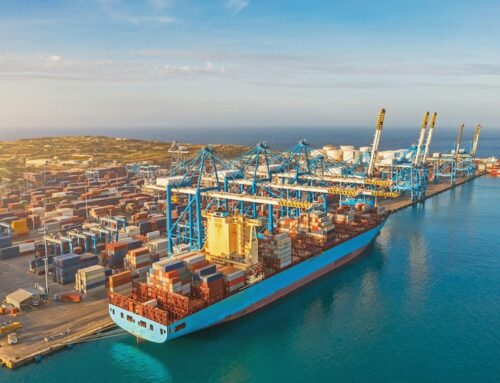The recent months from the summer period heading up to the Golden Week holiday at the start of October presented the usual challenges despite a slightly subdued market than the seasonal norm. The considerable unease within the Industry created by US-China trade war, Brexit and the looming IMO’s new fuel regulations have resulted in a slow down in growth across the industry.
Sea Freight
The early portion of Q3 was relatively strong although the back end of the quarter has seen a flattening in demand which is unusual for the time of year. As a result shipping lines have removed capacity to match demand and to try to keep rate levels stable. There has been much variation in growth in each trade lane reflecting the current geopolitical tensions around the World. North American container imports rates have flattened, and import volumes from Asia into the US have declined as US tariffs began to take effect. There has also been an impact on backhaul legs on the two largest East to West trade routes, with exports from Europe to Asia growing quite strongly, possibly due to a change of some Chinese import sourcing from Europe instead of from the US as US-China trade restrictions have escalated.
The global sulphur fuel cap continues to make an impact with most shipping lines now separating the bunker (fuel) element of the freight rate from the freight cost. All shipping lines are preparing for the change in sulphur regulations in readiness for compliance with IMO 2020. We will know more on the exact cost implications in early November and will keep all of our customers updated.
In Europe the unease from Brexit and the possibility of a ‘no deal’ continues to create much uncertainty. With days to go until the 31 October deadline the UK government has released a 12-month temporary tariff regime that would apply if Britain leaves the EU without a withdrawal deal, including amended tariffs to imports of HGVs, bioethanol and clothing.
Air Freight
The Air freight market continues to contract as a result of trade tensions, particularly between the US and China, but also political uncertainties worldwide. Global trade volumes are 1% lower than a year ago.
Exchange rates are still low as a result of Brexit uncertainty which is offsetting the present low market rates.
Looking Ahead
The general economic outlook globally is not as positive as it has been. Trade and geopolitical tensions threaten a further slowing to global economic growth.
The market is now just three months away from the implementation of the IMO’s new regulation that will see the sulphur content in marine fuel drop from 3.5% to 0.5% and the knock-on effect on fuel prices and associated freight rate. There is still no clear guidance on just how much additional cost will land on the industry. Carriers may try to protect cash flows by restricting capacity as best they can, through a combination of measures, including further slow-steaming, more blank sailings, and off-hiring of chartered vessels. As such, the level of disruption that the switchover will bring next year is still to be seen. At PFE we are acutely aware of the need for cost certainty and will endeavour to keep you informed of any further industry announcements as and when information becomes available.
The political uncertainty resulting from Brexit is a major factor causing unpredictability in the Air Freight market due to the risk of increased rates of duty or a potential decrease in VAT directly affecting an importer’s profitability.
The Air freight market is expected to grow towards the end of 2019 with a seasonal increase in volumes predominantly driven by the technological industry delivering large quantities for the Christmas market. The UK government’s announcement that they will charter cargo aircraft to ship emergency medicines in the event of UK leaving EU without a withdrawal agreement would add additional challenge to the market at the busiest time of year.
Although a lower growth yield is expected for the Air Freight industry than 2018, the expected fall in the price of oil should continue to strengthen the market.
As we now approach the Brexit deadline on 31 October, we will work with our customers to ensure any impact is minimised and clearly communicated as well as facilitating our customers to comply with the new regulations that will be required.
PFE we remain absolutely committed to providing the best levels of service to ensure your goods move as planned, be it via any mode of transport, from the many geographic locations we work directly within.








